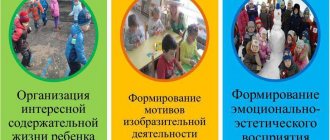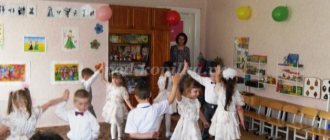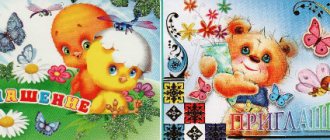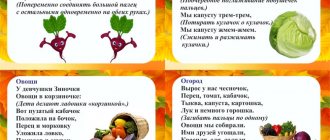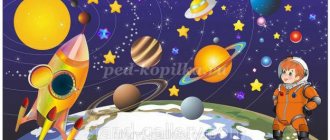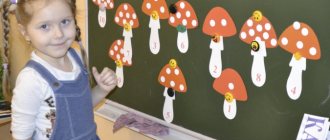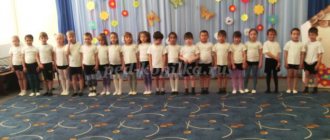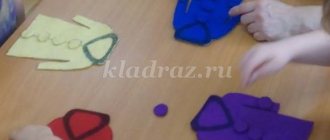Presentation - Development of reflection in preschool children
However, the process of reflection must be multifaceted, since the assessment must be carried out not only by the individual herself, but also by the people around her. Thus, reflection in the classroom is a joint activity of preschoolers and the teacher, which makes it possible to improve the educational process, focusing on the personality of each preschooler. Reflection (from the Latin “reflection”) is the ability to reflect, engage in introspection, introspection, comprehension, assessment of the prerequisites, conditions and results of one’s own activities and inner life. Modern pedagogical science believes that if a person does not reflect, he does not fulfill the role of a subject of the educational process. In modern pedagogy, reflection is understood as self-analysis of activities and their results.
Development of reflective skills in preschool children
Thus, the systematic and competent organization of reflective activities by a teacher with children of different preschool ages is preparation for conscious internal reflection as a very important quality of a modern personality, which ultimately contributes to the formation of a personality ready for self-education, self-education and self-development. One of the requirements for organizing educational activities with preschool children today is the teacher’s demonstration of a professionally correct and competent completion of the lesson, that is, the use of methods and techniques of reflective assessment.
Types of reflection used in preschool educational institutions
In the theoretical literature, several types of classifications of reflection are distinguished. In relation to preschool educational institutions, the following classification is more appropriate and acceptable:
Finished works on a similar topic
Coursework Reflection in a preschool educational institution 450 ₽ Abstract Reflection in a preschool educational institution 250 ₽ Test paper Reflection in a preschool educational institution 250 ₽
Receive completed work or specialist advice on your educational project Find out the cost
- Reflection on the content of an educational lesson is aimed at identifying the level of understanding and assimilation by children of the material that was presented by the teacher. Through this type of reflection, the teacher establishes logical connections between acquired knowledge and the ability to use it in practical activities.
- Reflection on pedagogical activity - provides an opportunity to comprehend the techniques and methods of work used by the preschool teacher when organizing training sessions. When conducting this type of reflection, the teacher teaches children to meaningfully control and plan their thinking, their actions, and evaluate their correctness. It is necessary to evaluate only those rules of action that are familiar and understandable to the child.
- Reflection of emotional state and mood - the mood and attitude of students are assessed at the beginning and end of the training session. At the beginning of a training session, reflection helps to identify the children’s emotional mood for the lesson, and at the end, satisfaction from its implementation is revealed.
Techniques for organizing reflection in children's association classes
Emotional and artistic design. Students are offered two paintings of a landscape. One picture is imbued with a sad, melancholy mood, the other with a joyful, cheerful one. Students choose the picture that matches their mood. You can do it both on a computer and without it, by placing images on the board and voting for them. "Logbook". A form of recording information using keywords, graphic models, short sentences and conclusions, questions. The parts of the “logbook” set by the teacher that will be filled out by students may include: key concepts of the topic, connections that the student can make, important questions.
Secrets of an exciting activity (from the experience of a teacher)
2) Progress of classes in kindergarten (process). Includes: repetition of covered material, explanation of new material, consolidation. Fulfillment of assigned tasks, taking into account health-saving teaching methods. The lesson can be complex. Including means to achieve several goals or just one, using game moments, visual material, dynamic pauses or physical minutes. Independent activity. In this article, I would like to share “little secrets” at each stage of the lesson, which can be useful in preparing an exciting, unforgettable event for preschool children. Lesson structure. 1) Start of classes in kindergarten (organizational moment, greeting). The goal of this stage is to include each preschooler in activities and create a favorable atmosphere in the classroom. -Ritual greetings. — Using exercises to concentrate attention, games for team building. -Organization of preschoolers and the mood for classes. — Stimulation of interest and emotional mood. For example:
Please note => Statement of claim for the payer code section
